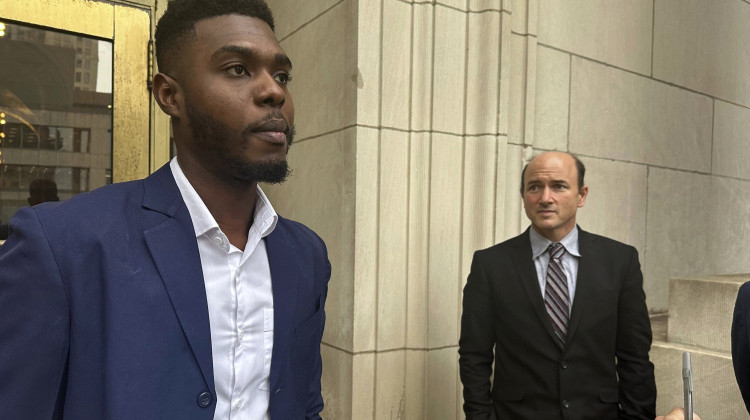The House Ethics Committee postponed a decision about the validity of alleged ethics violations against Rep. Eric Turner, R-Cicero, during its meeting Wednesday.
Rep. Greg Steuerwald, R-Avon, who chairs the committee, said he would give the other six members another week to look over the rules of the House, the House Code of Ethics and written testimony from Turner. The decision was made after members of the committee, particularly Rep. Gail Riecken, D-Evansville, said the testimony was not distributed soon enough for them to review.
House Speaker Brian Bosma, R-Indianapolis, sent the issue to the committee after Democratic Party Chairman John Zody asked the leader to look into accusations that Turner allegedly lobbied for a proposal that could have helped his children’s nursing home construction business.
Indiana placed a moratorium on nursing home construction in 2009 in part to curb private-paying residents from switching to newer facilities. Proponents of that law say without it, older facilities would have a harder time affording the care for Medicaid patients who would be left.
Hoosier lawmakers were considering legislation that would have extended the moratorium but it died on the session’s last day. A report by the Associated Press says that happened after Turner lobbied in a private caucus against it. That’s when the Democrats requested an investigation.
After receiving Bosma’s letter, Steuerwald and Rep. Clyde Kersey, D-Terre Haute, submitted three sets of questions for Turner to answer under oath. The questions asked about conversations Turner had in the Republican caucus regarding the nursing home moratorium and about claims he made on his 2013 statement of economic interest.
In his written response to Steuerwald and Kersey’s questions, Turner cited a section of the House Ethics Rules that says “every member shall give freely of his or her particular expertise during a discussion or debate upon a given proposal.” He said this rule gave him the authority – and required him – to discuss the nursing home moratorium in caucus.
He also said he disclosed his investments in Mainstreet Property Group, a senior care facility developer, before he discussed the legislation with other members of the Republican Party. Turner’s son is president of the Mainstreet Property Group.
Turner was also questioned about changes he made to his statement of economic interest between the 2005 and 2006 sessions. In 2005, Turner disclosed all secondary companies owned by companies he invested in. But in 2006, he only claimed the parent businesses.
Turner said in 2006 the law only required him to list companies he and his wife had personally invested in, not the other businesses the larger companies owned. So, he chose not to list the smaller companies on his statement of economic interest.
Kersey said he and Steuerwald were satisfied with Turner’s explanation.
In his testimony, Turner listed any companies owned by the businesses he and his wife invested in and claimed on his 2013 statement of economic interest. Turner said he will not amend the statement.
According to the House rules, members who have a conflict of interest in a piece of legislation “shall ask to be excused and shall not vote on that question.”
Turner said this rule proves that he did not violate any ethical standards.
“I never sponsored legislation or cast a vote during the 2014 legislative session on any legislative matter regarding the nursing home moratorium,” Turner said. “Therefore, I did not violate the House Ethics Rules or the House Rules.”
But, in his letter, Zody said the rule proves Turner’s ethical wrongdoing.
“Representative Turner clearly believed that there was a conflict of interest, or he would not have recused himself publicly from voting on this issue,” Zody said. “But behind closed doors he fervently lobbied his colleagues near the end of the session when significant decisions are made.”
Turner was not present at the committee hearing. But in a statement, Turner thanked the committee for “conducting a thorough review of the facts and I was pleased to answer the questions presented to me.”
“I am confident the Ethics Committee will conclude that I have acted within the House rules and the House Code of Ethics, as I have for my entire 24 year legislative career,” he said.
The committee will meet again on April 30. Steuerwald said the committee will decide whether or not Turner violated any ethical policies at the meeting.
Olivia Covington is a reporter for TheStatehouseFile.com, a news website powered by Franklin College journalism students. Deron Molen also contributed to this story.
 DONATE
DONATE







 View More Programs
View More Programs


 Support WFYI. We can't do it without you.
Support WFYI. We can't do it without you.